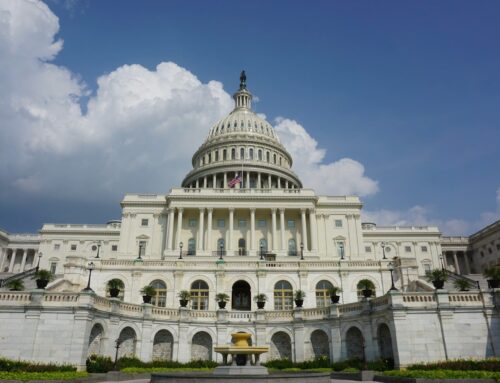Have you heard? The President has declared this “Buy American” week.
You know what week we would like to see? “Protect Taxpayers” week. Because Buy American instincts are just a politically palatable way of saying “protectionism” or “parochialism.” And once you start down that road, taxpayers better hold on to their wallets because costs are going to go up.
Back in April the President signed an executive order on this issue. It states in part, “In order to promote economic and national security and to help stimulate economic growth, create good jobs at decent wages, strengthen our middle class, and support the American manufacturing and defense industrial bases, it shall be the policy of the executive branch to maximize…the use of goods, products, and materials produced in the United States.”
At TCS we have a long history of opposing these thinly-disguised parochial interests that border on earmarking. With rare exceptions, the Pentagon should be allowed to set the specifications for what it wants and get the best product at the best price – wherever those products are made.
But Congress has an even longer history of protecting domestic manufacturing through the dubious process of requiring the Pentagon to buy things like anchor and mooring chain, steel products, and ball bearings exclusively from U.S. manufacturers. These provisions have appeared, year after year, in the annual Pentagon spending bill. In a small victory for common sense the last two years have seen the defeat of the 50+ year old provision requiring the U.S. military to ship coal from Pennsylvania to coal-rich Germany. Score one for the good guys!
Lawmakers do love them some protectionist provisions when it comes to the Pentagon, in particular. This push to protect parochial interests is a bipartisan affliction in the National Defense Authorization Act. It’s the type of crony capitalism that leads to increased taxpayer costs and possibly leaves our warfighters with not the best product. In the current environment there is increased interest in these “Buy American” provisions which have become a form of back-door earmarking.
In some cases it’s protectionism on training wheels. Rep. Marino (R-PA) also sought a report on “sourcing of tungsten and tungsten powders from domestic producers.” Mr. Marino’s amendment was adopted and may yet lead to another ridiculous law.
The House Armed Services Committee report also directs the yet-to-be-confirmed Secretary of the Navy report back on impacts to the domestic textile industrial base (aka sheep and wool industries) from the shift away from peacoats to new cold weather parkas. Evidently the U.S. “domestic textile industrial base” is three companies in New England that make the wool and the peacoats.
But this year’s reports can turn into next year’s directives. Case in point: The FY2014 NDAA directed an analysis on sourcing American-made athletic shoes for new recruits. The FY2017 bill included a provision that effectively forced new service members to have American made athletic shoes. The provision was written so that the lone beneficiary would be New Balance. Bottom line, men and women in uniform deserve the best equipment at the best price.
With the moratorium on earmarks, lawmakers are getting more creative in their attempts to circumvent the rules. The most recent case in point is freshman Rep. Tenney (R-NY) who offered an amendment to give stainless steel flatware the protections of the Berry Amendment. This ill-conceived part of the contracting law of the land, requires all food (with a few exceptions) and elements of clothing, tents and tarpaulins purchased by the Pentagon to be made in America with exclusively American content. (Think thread, buttons, zippers, snaps…). And Rep. Tenney wants to extend that to stainless steel flatware. We’re pretty sure this is because the only domestic manufacturer of stainless steel flatware just happens to be in Ms. Tenney’s district. Her office admitted the same recently to the Washington Post.
In a small victory, Rep. Tenney’s amendment was defeated after House Armed Services Committee Chairman Thornberry (R-TX) spoke against it. He said, in part, “We cannot go down the road of adding category after category after category of items to help our districts at the expense of our troops and the best use of dollars when it is not a matter of vital national security. I just don’t think that the knives and forks we use qualify as vital national security.”
Boom!
We couldn’t have said that better ourselves. But, unfortunately, these “Buy America” provisions are a new form of backdoor earmarking to pick winners and losers and are probably here to stay.










Get Social